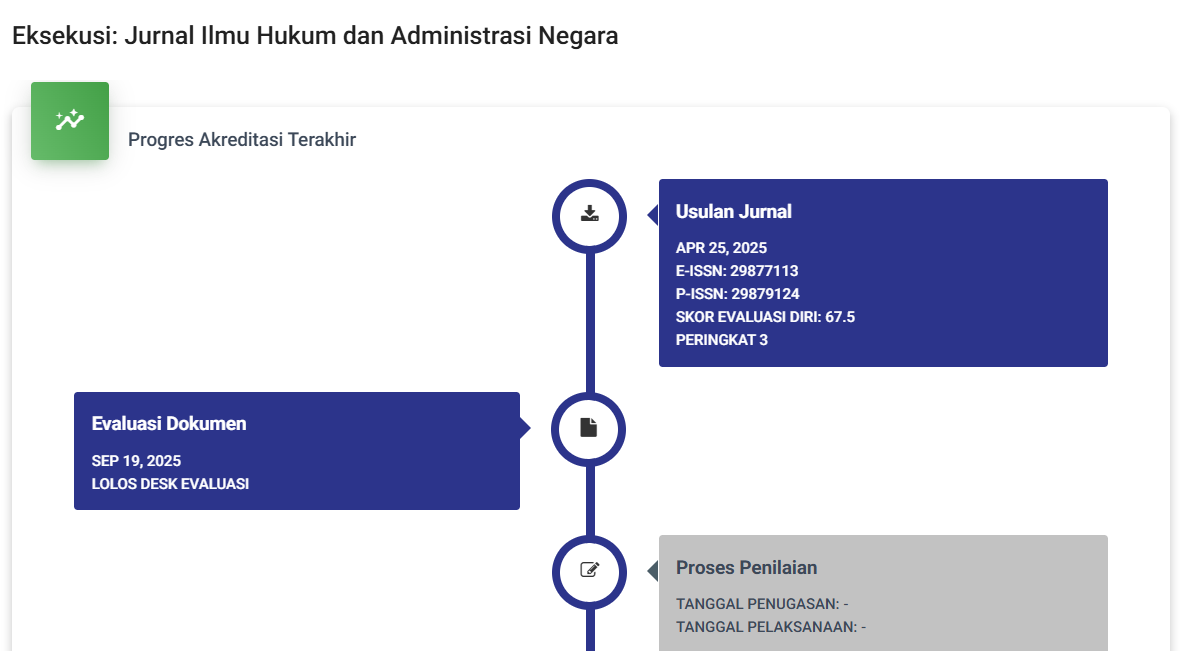Analisis Potensi Implementasi Sistem Politik Tanpa Partai di Indonesia dan Dampaknya terhadap Demokrasi dan Tata Kelola Pemerintahan
DOI:
https://doi.org/10.55606/eksekusi.v2i4.1531Keywords:
Non-Party Political System, Indonesian Democracy, GovernanceAbstract
This research analyzes the potential implementation of a non-party political system in Indonesia and its impact on democracy and governance. Indonesia has adopted a multi-party system since the reform era in 1998, but has often faced challenges that threaten the stability and quality of democracy. One of the main issues is the dominance of political parties in the government bureaucracy, which leads to practices of corruption, collusion, and nepotism. This study explores the alternative of a non-party political system as a solution to improve meritocracy, reduce political oligarchy, and strengthen the accountability of public officials. A qualitative approach with a literature study method is used to collect data from various sources. The results show that while a non-party system has the potential to bring positive impacts, constitutional challenges, resistance from political parties, and risks to political diversity remain significant obstacles. Reforming the party system with a focus on transparency, accountability, and cadre quality is considered more realistic and effective in improving democracy and governance in Indonesia.
References
Abhipraya, F., et al. (2020). Peran komite independen sadar pemilu (KISP) sebagai LSM kepemiluan dalam melawan praktik politik uang. Politicon: Jurnal Ilmu Politik, 2(2), 165–190. https://doi.org/10.15575/politicon.v2i2.8556
Adam, L., et al. (2019). Pengaruh kepemimpinan terhadap partisipasi masyarakat pada perencanaan pembangunan. JAKPP (Jurnal Analisis Kebijakan & Pelayanan Publik), 144–164. https://doi.org/10.31947/jakpp.v1i2.7977
Adams, J., & Ezrow, L. (2009). Who do European parties represent? How Western European parties represent the policy preferences of opinion leaders. The Journal of Politics, 71(1), 206–223. https://doi.org/10.1017/S0022381608090130
Adriani, S., et al. (2024). Partisipasi perempuan dalam politik. Journal of Practice Learning and Educational Development, 4(2), 131–136. https://doi.org/10.58737/jpled.v4i2.287
Andersen, D., & Cornell, B. (2022). Voting for bureaucracy? Contestation, suffrage, and meritocracy. European Journal of Political Research, 62(4), 1122–1145. https://doi.org/10.1111/1475-6765.12553
Beyers, J., et al. (2015). The alignment of parties and interest groups in EU legislative politics: A tale of two different worlds? Journal of European Public Policy, 22(4), 534–551. https://doi.org/10.1080/13501763.2015.1008551
Bowler, S., & Donovan, T. (2002). Democracy, institutions and attitudes about citizen influence on government. British Journal of Political Science, 32(2), 371–390. https://doi.org/10.1017/S0007123402000157
Clarke, H., et al. (2015). Heuristics, heterogeneity, and green choices: Voting on California’s Proposition 23. Political Science Research and Methods, 5(4), 755–774. https://doi.org/10.1017/psrm.2015.39
Darmawan, I., et al. (2015). Keterlibatan selebriti dalam pemilu Indonesia pasca Orde Baru. Sosiohumaniora, 17(3), 230. https://doi.org/10.24198/sosiohumaniora.v17i3.8341
Donovan, T., et al. (2019). The promise and perils of direct democracy: An introduction. Politics and Governance, 7(2), 169–172. https://doi.org/10.17645/pag.v7i2.2267
Ekawati, E., et al. (2019). Peta koalisi partai-partai politik di Indonesia pada pemilihan presiden dan wakil presiden pasca Orde Baru. Jppuma: Jurnal Ilmu Pemerintahan dan Sosial Politik Universitas Medan Area, 7(2), 160. https://doi.org/10.31289/jppuma.v7i2.2680
Meyer, T. (2012). Peran partai politik dalam sebuah sistem demokrasi: Sembilan. Jakarta: Friedrich-Ebert-Stiftung (FES).
Prasojo, E. (2023). Isu-isu kontemporer kebijakan dan governansi publik di Indonesia. Prenada Media.
Wibiyanto, A., et al. (2023). Membedah dinamika komunikasi politik pada partai politik di Indonesia. Wade Publish.
Winarno, B. (2008). Globalisasi: Peluang atau ancaman bagi Indonesia. Erlangga.








